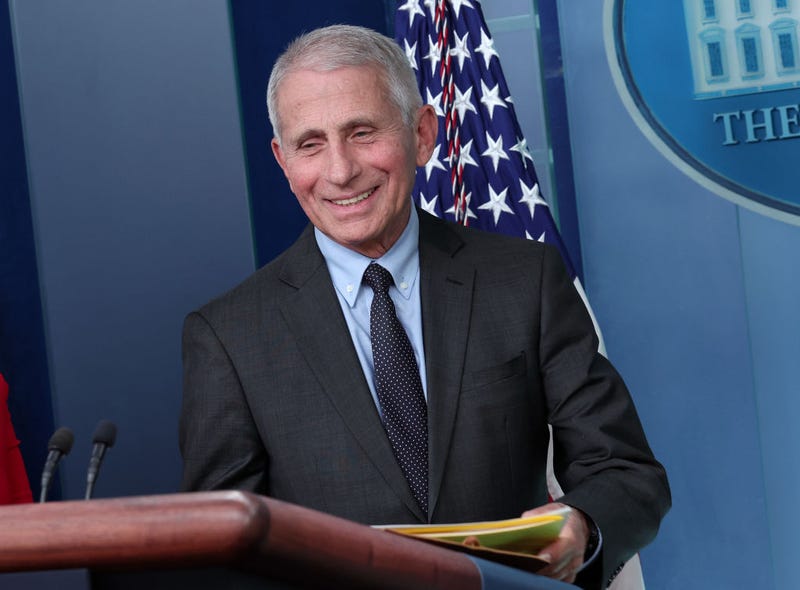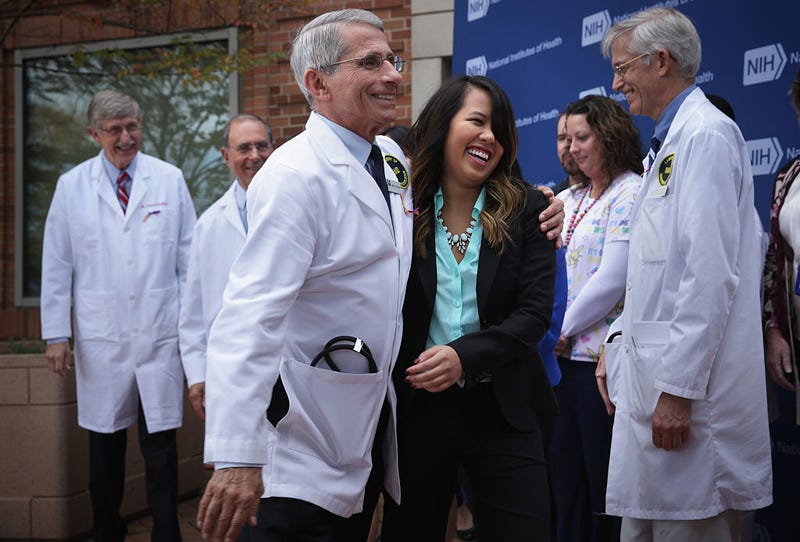
NEW YORK (WCBS 880) — Dr. Anthony Fauci is stepping down as head of the National Institute of Allergy and Infectious Diseases at the end of the month after a five-decade career in public service, yet he is still receiving death threats.
"It's as bad as it's ever been," Fauci told WCBS 880 anchor Steve Scott. "I think it reflects a lot of the misinformation and disinformation that has led to an anti-science theme among some people in this country and that has led to hostility against people like myself."
"All we are doing is trying to save people's lives," he added.
Fauci, who has spearheaded the fight against a litany of infectious diseases — including HIV, Ebola and COVID-19 — said that the pandemic is still ongoing, and with 300 to over 400 deaths per day, the United States is not out of the woods yet.
"We're not at a level that I would consider comfortable with," he said. "We're still seeing an unacceptable number of people in this country dying who do not need to die," amid a spike in COVID and flu cases just as Americans begin to congregate for the holidays.
Fauci said that misinformation and disinformation "hampered an adequate response" to the pandemic and that he never expected public health to become political.
"Divisiveness has spilled over into the public health arena, where decisions on the part of the individual seem to be influenced by their ideology, where a political party gets more people vaccinated than in another political party," he added. "That should never be."

In announcing his departure in August, Fauci called his role at NIAID "the honor of a lifetime." He clarified the next phase of his career to WCBS 880.
"It's not at all retiring in the classic sense of pulling back from working on the things I've been working on for such a long period of time," he said. "It's stepping down from my 54 years of government service, 38 years of which I was director of the Institute, in order to pursue similar directions but only outside of the venue of the federal government."
He said he intends to devote his time to lecturing, writing and hopes to even inspire "some of the younger generation to get involved in science and medicine."
Fauci said it's not in his "personality" to give up his "constitutional workaholic" mentality, despite the fact that he will turn 82 on Christmas Eve. However, he hopes to "enjoy a few more things" than he was able to "under the frenetic pace" of his 16-hour days over the past few years.
"I'm not going to be lying on a beach or playing golf — neither of which I do very well," he said.
One thing the Brooklyn native said he will make time for is a visit to the Big Apple.
"I love New York," Fauci added. "Of course, I'll be back."



